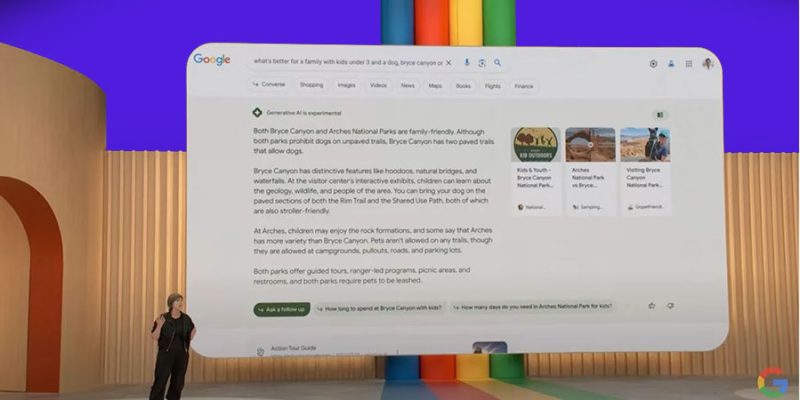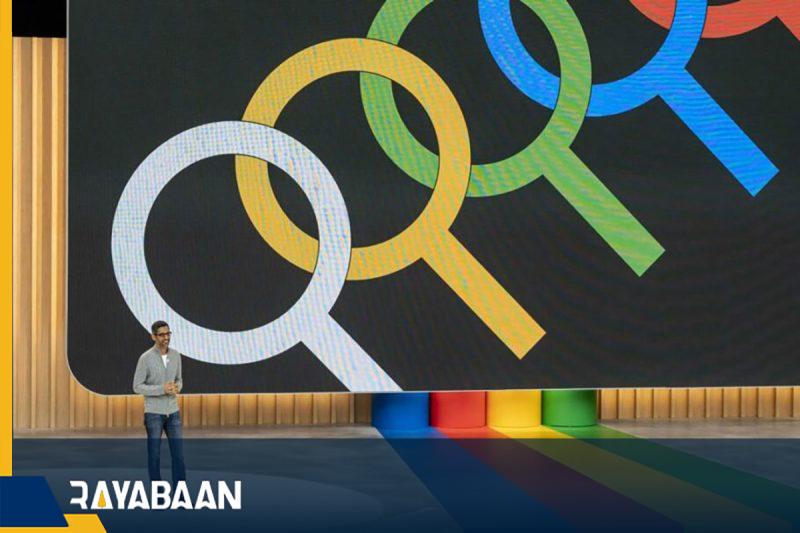Expressing the concern of content publishers: artificial intelligence in the Google search engine can harm the traffic of sites
Content publishing websites say that the use of artificial intelligence to provide direct answers to searches can reduce their audience.
At I/O 2023, Google unveiled AI-based changes to its search engine that will provide direct answers to questions at the top of search results.
Now, some content publishing websites have expressed their concern that if these changes go out of the experimental mode and become the default mode of content display in Google, their visitors will decrease significantly. They are looking for a way to deal with this problem.
According to CNBC, last Wednesday, Google introduced changes to its search engine and called this new version “Search Generative Experience” (SGE). In this version, instead of facing normal search results that include the familiar blue links of this search engine, users will be faced with texts from artificial intelligence and a few limited links at the top of the page.
Although these changes have not been made publicly available, content publishers are concerned that they will lose some of their visitors if these changes are implemented.
This reflects an old problem between Google and the websites that the search engine indexes. This has become more complicated with the advent of AI chatbots, as this technology can take information from content publishers’ websites and provide it directly to the user. As a result, no more traffic will be sent to these sites.

Artificial intelligence in the Google search engine does not bring benefits to publishers
Routledge Doggett, CEO of TechRaptor, a site focused on game news and reviews, says that Google’s decision was made without considering the interests of content publishing websites and the effect of artificial intelligence on them. “Artificial intelligence has so far been quick to use other people’s information without giving them any benefit, and in cases like Google, Bard doesn’t even give a reference to where it got its information,” says Doggett.
Luther Lowy, a longtime Google critic, and Yelp’s chief privacy officer, says Google’s changes are part of the company’s decades-long strategy to keep as many users on the website as possible. This happens in a situation where he believes that Google should return users to the websites where the content was produced.
Now the question has arisen for some publishers whether they can prevent these artificial intelligence tools from extracting information from their websites. “What you have to do is ask the content publishing industry to say until systems are designed that give a portion of the revenue to the publisher,” says Barry Diller, chairman of the board of IAC, which owns sites like All Recipe, People Magazine, and The Daily Beast. We take it back, you are not allowed to extract our contents.
Diller believes AI companies can be sued under current copyright laws. But even if there is no such platform, they will move towards changing the copyright laws.

